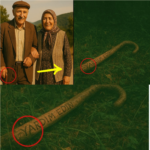Kerala Woman Dies Under Suspicious Circumstances in UAE: A Tragic Case of Alleged Dowry Harassment and Murder
A heart-wrenching tragedy has struck the town of Kollam, Kerala, echoing far beyond the borders of India to the United Arab Emirates. Atulya Shakhar, a 29-year-old woman from Kerala’s Kollam district, was recently found dead under what police officials are calling “suspicious circumstances” in Sharjah, UAE. Her family, devastated and desperate for answers, alleges that Atulya was a victim of ongoing dowry harassment, domestic violence, and ultimately, murder.
This incident is now drawing attention across two countries, reigniting urgent conversations about the persisting problem of dowry-related abuse and the vulnerability of women, particularly among expatriate communities.
A Marriage That Became a Nightmare
Atulya’s marriage to Satish — also from Kollam — initially seemed like a typical union. The couple moved to Sharjah, UAE, soon after their wedding, pursuing what many hoped would be a new chapter filled with promise. However, what started as a hopeful marriage quickly devolved into a harrowing ordeal.
According to Atulya’s mother and family, Atulya signaled that all was not well in her marriage. Over time, it became unavoidably evident that she was the target of repeated domestic violence. Reports allege that she was not only verbally abused but also physically assaulted by her husband on multiple occasions.
The most devastating events unfolded between July 18 and 19. Her family claims that during these days, Atulya endured extreme physical violence — she was allegedly choked, kicked in the stomach, and struck on her head with a plate. The brutality of these attacks, as described by those close to her, proved fatal. Atulya did not survive the injuries.
Video Evidence: Her Silent Plea For Help
What makes this case particularly tragic — and critical for the ongoing investigation — is the evidence Atulya left behind. In a courageous attempt to document her suffering, Atulya reportedly recorded videos of her husband’s violent outbursts. The footage, now in the hands of investigators, allegedly shows clear evidence of the abuse she endured in her marital home. These recordings have become a crucial part of the murder probe, potentially offering an unfiltered view of what life was like for Atulya in her final days.
For her family, these videos are not just evidence; they are her voice from beyond the grave, a desperate effort to seek support and justice when her own pleas were ignored.
Dowry Demands: An Enduring Curse
At the heart of Atulya’s story is the issue of dowry, a deeply entrenched social practice that continues to imperil women’s lives across India and among Indian communities abroad, despite being outlawed decades ago. According to Atulya’s family, Satish’s relentless demands for dowry started almost immediately after their marriage.
They report that, at the time of the wedding, they provided more than 40 sovereigns of gold (an amount significant in Indian matrimonial customs) and even gifted a motorcycle to Satish. The family describes these gifts not as voluntary offerings, but as responses to explicit demands. Yet, these gifts did not satisfy Satish. Atulya’s relatives assert that the demands for more dowry never really stopped, fueling ongoing tension and violence in the household.
A Campaign for Justice
In the wake of Atulya’s tragic death, her family has taken their fight public. Speaking to the media and authorities, her mother and siblings are unwavering in their demand for justice — not just for Atulya but for all women who continue to suffer in silence under the shadow of dowry-related abuse.
Authorities have now filed a formal murder case against Satish. Sharjah police are coordinating with Indian law enforcement and consular officials to proceed with the investigation. For now, Satish is reportedly in custody as questions swirl about the events that led to Atulya’s death.
“This is not just about Atulya,” said her mother. “It is about all the daughters who are being tortured and whose lives are destroyed because of greed. We want the world to know what happened to her, and we want her husband to be punished for what he has done.”
A Grim Trend: Domestic Violence Abroad
Atulya’s story is a grim reminder of the risks many women face in transnational marriages. For Indian women residing abroad, especially in the Gulf states, the challenges can be magnified by geographical isolation, unfamiliar legal systems, and limited access to support networks. In cases of dowry harassment or domestic violence, women often lack the resources or legal protections afforded to them in India.
Recent years have seen an alarming number of such incidents involving Indian expatriates in the Gulf. The lack of robust support systems for battered spouses leaves them more vulnerable and less likely to seek help — a reality that may have contributed to Atulya’s untimely death.
Dowry and Domestic Violence: The Continuing Crisis
Despite the Dowry Prohibition Act passed in India in 1961, and ongoing campaigns to end the practice, dowry-related violence persists in various forms. According to India’s National Crime Records Bureau, thousands of dowry-related deaths and harassment cases continue to be reported each year, while countless others go unreported.
The persistence of these crimes, even among the well-educated and affluent, points to a cultural malaise that transcends socio-economic boundaries. Social activists argue that legislative action, while necessary, cannot by itself eradicate a practice deeply intertwined with notions of familial status, tradition, and gender inequality.
The Search for Answers
As police in the UAE continue their investigation, the international Indian community is watching closely. Social and women’s rights activists in Kerala have begun organizing campaigns to demand accountability, both in India and the UAE. Several organizations are calling on the Ministry of External Affairs to offer legal and diplomatic support to Atulya’s family, and to ensure her case does not fall through the cracks of bureaucratic apathy.
Her family, meanwhile, holds on to hope that the video evidence she recorded will speak the truth she was not allowed to voice in her lifetime.
A Call for Change
Atulya’s tragic story is not unique, but it is a powerful wake-up call. It shatters the illusion that dowry-related violence and spousal abuse are relics of the past. Instead, her case exposes how these dangers persist — sometimes hidden behind closed doors, sometimes displaced to faraway lands, but always with devastating consequences for women.
“Her voice was silenced,” wrote a local women’s activist in Kerala. “But we will not let her story be forgotten. Atulya is every woman whose suffering was ignored, whose courage was unacknowledged. Justice for her is justice for us all.”
Conclusion: Will Justice Be Done?
As the investigation unfolds, the world waits. Atulya Shakhar’s fight did not end with her death. Through her courage in documenting her abuse, she left behind a plea for justice — not just for herself but for countless women everywhere. Her family’s relentless pursuit of justice keeps her memory alive.
In the face of such tragedy, society must ask itself: Will justice truly be done? And what more can be done to prevent the next Atulya from suffering the same fate?
Only time will tell if this case marks a turning point in the struggle against dowry harassment and domestic violence — or if it will simply become another statistic, another silenced voice. For now, all we can do is listen to the truth she left behind, and hope the world is ready to act.
If you or someone you know is experiencing domestic violence or dowry harassment, please seek help. There are organizations and hotlines available in both India and the UAE to offer support and protection.
News
उस दिन के बाद ऑफिस का पूरा माहौल बदल गया। अब कोई भी किसी की औकात या कपड़ों से तुलना नहीं करता था। सब एक-दूसरे की मदद करने लगे। अर्जुन सबसे प्रेरणा देने वाला इंसान बन गया। रिया भी अब पूरी तरह बदल चुकी थी। वह विनम्रता से छोटे काम करने लगी और धीरे-धीरे सबका विश्वास जीतने की कोशिश करने लगी।
चायवाले से मालिक तक: इंसानियत की असली पहचान सुबह-सुबह जयपुर शहर की सबसे बड़ी मल्टीनेशनल कंपनी के ऑफिस के गेट…
रिया फूट-फूट कर रो पड़ी। उसके सारे सपने, घमंड और अभिमान पल भर में टूट गए थे। बाकी सभी कर्मचारी भी कांप गए। सब सोचने लगे, “हे भगवान, हमने भी कल उस चायवाले की हंसी उड़ाई थी। अब अगर मालिक को याद आ गया तो हमारी भी छुट्टी हो जाएगी।”
चायवाले से मालिक तक: इंसानियत की असली पहचान सुबह-सुबह जयपुर शहर की सबसे बड़ी मल्टीनेशनल कंपनी के ऑफिस के गेट…
दूसरे दिन का माहौल चायवाले से मालिक तक: इंसानियत की असली पहचान
चायवाले से मालिक तक: इंसानियत की असली पहचान सुबह-सुबह जयपुर शहर की सबसे बड़ी मल्टीनेशनल कंपनी के ऑफिस के गेट…
चायवाले से मालिक तक: इंसानियत की असली पहचान
चायवाले से मालिक तक: इंसानियत की असली पहचान सुबह-सुबह जयपुर शहर की सबसे बड़ी मल्टीनेशनल कंपनी के ऑफिस के गेट…
I gave a drenched old man shelter in my home. The next morning, he offered to buy my house for $1. “I’m not joking,” he said. “I can’t explain, but you need to leave it immediately.”
I gave a drenched old man shelter in my home. The next morning, he offered to buy my house for…
शीर्षक: “शिखर पर अहंकार नहीं, इंसानियत टिकती है”
शीर्षक: “शिखर पर अहंकार नहीं, इंसानियत टिकती है” सुबह के दस बजे थे। शहर के सबसे आलीशान रेस्टोरेंट “एमराल्ड टैरेस…
End of content
No more pages to load






